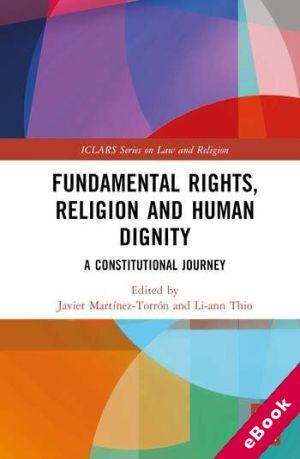
The device(s) you use to access the eBook content must be authorized with an Adobe ID before you download the product otherwise it will fail to register correctly.
For further information see https://www.wildy.com/ebook-formats
Once the order is confirmed an automated e-mail will be sent to you to allow you to download the eBook.
All eBooks are supplied firm sale and cannot be returned. If you believe there is a fault with your eBook then contact us on ebooks@wildy.com and we will help in resolving the issue. This does not affect your statutory rights.
This collection examines theoretical and practical issues concerning the relationship between freedom of religion or belief and other fundamental rights, in the context of secular States, from the perspective of human dignity.
As the Universal Declaration of Human Rights made clear, human dignity constitutes the foundation of human rights, among which freedom of thought, conscience and religion occupies a prominent place. As a consequence of the inter-cultural debate that is ongoing in contemporary Western societies, which are increasingly pluralistic, the concept of human dignity faces important challenges in terms of what it requires. The five chapters included in the first part of this book discuss some of these conceptual challenges, such as the implications of common good constitutionalism for the understanding of human dignity and the role of religious freedom from the perspective of Western experiences and legal thinkers. The chapters in Part II explore particular questions involving human dignity and the relationship between freedom of religion or belief and other human rights, for example, how to build bridges between religious freedom and other fundamental freedoms when people make conflicting legitimate choices. Taken together, the book offers an insightful range of perspectives on some contemporary challenges raised by the exercise of religious freedom in societies that claim to be based on respect for human dignity and human rights.
The volume will be a valuable resource for academics, researchers and policy-makers working in the areas of Law and Religion, Human Rights Law, Constitutional Law and International Relations.